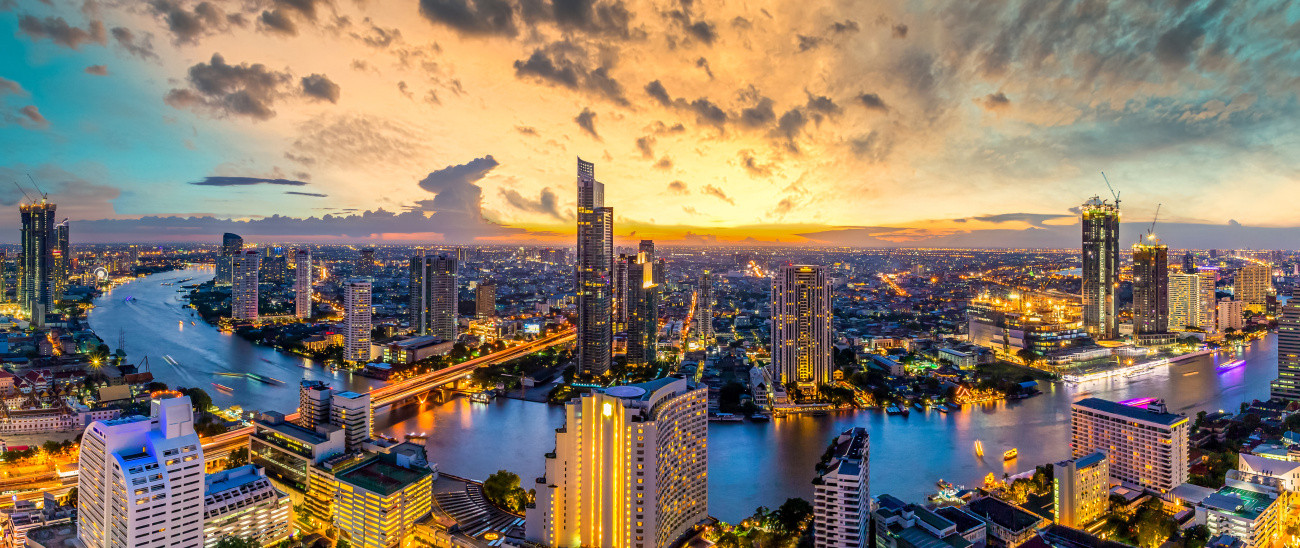The NTI 100 report for 2021 listed the 146 leading PCB manufacturers in the world, stating that the concentration process of global production on the Asian members of the NTI 100 list is continuing steadily [1]. This opening of the column provides further information on how the PCB industry in Southeast Asia is currently developing and that the extensive investments of the major board producers will lead to further shifts in the NTI 100 list for 2022. Further examples are covered in the column in issue 5/2023.
China is undoubtedly still the global production center for many industrial products. However, as the country has become more prosperous, labor costs have risen. For certain jobs, they are already on a par with Japan, Singapore, Taiwan and South Korea. From a PCB manufacturing perspective, however, China is still the best place to be. Its strength lies in its well-established PCB manufacturing infrastructure. With some exceptions, key materials and equipment are available right next to the PCB production site. In 2021, for example, 64% of all boards produced by Taiwanese PCB companies were manufactured in China. As their volume and value increased, all major Taiwanese suppliers of laminates, glass yarn/fabric, copper foil, epoxy resin, drilling machines, electroplating and etching equipment set up major plants in China. But China's neighbors are catching up, as this report shows.
However, as US sanctions against China continue and major cities are repeatedly locked down by the Chinese government due to its strict zero-covid policy, the supply chain is often disrupted, leading to production stoppages(Fig. 1). This has prompted PCB customers to suggest their board suppliers to set up facilities outside China.
Japanese PCB manufacturers stopped investing in China more than ten years ago, partly due to the political situation after the Senkaku Island dispute between Japan and China and partly because they do not want to 'put all their eggs in one basket', namely in China. One exception is Nippon Mektron, known outside Japan as Mektec. The company has expanded in Suzhou and Zhuhai to increase production capacity for flex PCBs for certain customers operating in China. Below we take a look at the situation in the PCB industry in other Southeast Asian countries.
Thailand
 Fig. 2: The main centers of Thai PCB production are located in the south of the country around Prachinburi and Ayutthaya (picture: sunset in Ayutthaya)The Japanese group CMK, founded in 1961, the largest PCB manufacturer in the world about 20 years ago and now only ranked 34th in NTI-100 for 2021, once had plants in Japan, Singapore, Indonesia and Malaysia with a production capacity for single-sided printed circuit boards (SSB) of 1 000 000m2/month. As the company began to shift its market towards automotive applications and household appliances began to go digital, demand for single-sided PCBs declined. As a result, it stopped producing SSBs and closed all these plants in Southeast Asia. Instead, it built a new plant in Thailand (Prachinburi) and two in China to produce double-sided and multilayer carriers including HDI boards. In contrast to most PCB companies relocating to areas north of Bangkok, in and around Ayutthaya(Fig. 2), CMK chose the 304 Industrial Estate in Pranchinburi, about a two-hour drive east of Bangkok. If you drive from Bangkok to Prachinburi, you will see many automotive companies along the roads there. The company is now building a new multilayer plant next to the existing plant with an investment of $220 million (2021 exchange rate), which is scheduled to go into operation in August 2024. The products are mainly multilayers including HDI printed circuit boards for automotive applications. CMK had PCB sales of $747 million in 2021 according to NTI-100.
Fig. 2: The main centers of Thai PCB production are located in the south of the country around Prachinburi and Ayutthaya (picture: sunset in Ayutthaya)The Japanese group CMK, founded in 1961, the largest PCB manufacturer in the world about 20 years ago and now only ranked 34th in NTI-100 for 2021, once had plants in Japan, Singapore, Indonesia and Malaysia with a production capacity for single-sided printed circuit boards (SSB) of 1 000 000m2/month. As the company began to shift its market towards automotive applications and household appliances began to go digital, demand for single-sided PCBs declined. As a result, it stopped producing SSBs and closed all these plants in Southeast Asia. Instead, it built a new plant in Thailand (Prachinburi) and two in China to produce double-sided and multilayer carriers including HDI boards. In contrast to most PCB companies relocating to areas north of Bangkok, in and around Ayutthaya(Fig. 2), CMK chose the 304 Industrial Estate in Pranchinburi, about a two-hour drive east of Bangkok. If you drive from Bangkok to Prachinburi, you will see many automotive companies along the roads there. The company is now building a new multilayer plant next to the existing plant with an investment of $220 million (2021 exchange rate), which is scheduled to go into operation in August 2024. The products are mainly multilayers including HDI printed circuit boards for automotive applications. CMK had PCB sales of $747 million in 2021 according to NTI-100.
Another Japanese PCB manufacturer, Kyoden, is building a new multilayer factory in Chonburi, south of Bangkok, next to its existing double-sided PCB plant. 'Buri' means 'river' or 'stream' in the Thai language. The investment amounts to around 100 million dollars. As with CMK, the main applications for the printed circuit boards manufactured by Kyoden Thai are in the automotive industry. Thailand was a base for automotive production, especially for the Japanese. Starting in 2022, South Korean and Chinese automakers announced that they will set up electric vehicle (EV) production plants there. Such a move makes Thailand an even more attractive investment location for the production of printed circuit boards as well.
Taiwan-based APEX International (ranked 45th in NTI-100 for 2021) expanded its Thai plant at the APEX 2 campus in the Shinsakon Industrial Estate, about an hour southwest of Bangkok. The newly constructed plant is the third on this campus. Production began at the end of 2021 and the plant was fully commissioned in May 2022. APEX's turnover amounted to $535 million in 2021.
 Fig. 3: Flooding in Ayutthaya, 2011 (satellite image)WUS Printed Circuit Co. Ltd, a Taiwanese company that has been manufacturing printed circuit boards since 1972 and formerly traded as Wus (Wu-Shi), is investing $280 million in Ayutthaya, Thailand(Fig. 2). Phra Nakhon Si Ayutthaya will offer PCB design and manufacture boards. The project should start in the second half of 2022, with mass production targeted for the first half of 2025. WUS Taiwan already operates two plants in Kunshan, China: WUS Printed Circuit for board production and Centron Electronics Co. Ltd. for SMT services. In 2005, WUS ranked 15th in the global ranking of PCB manufacturers. In the 2021 NTI 100 list, the WUS Group was only ranked 20th with annual sales of $1.352 billion despite a huge increase in sales. WUS manufactures HDI PCBs with an L/C (line/space) ratio of 75 µm as standard and 64 µm as advanced.
Fig. 3: Flooding in Ayutthaya, 2011 (satellite image)WUS Printed Circuit Co. Ltd, a Taiwanese company that has been manufacturing printed circuit boards since 1972 and formerly traded as Wus (Wu-Shi), is investing $280 million in Ayutthaya, Thailand(Fig. 2). Phra Nakhon Si Ayutthaya will offer PCB design and manufacture boards. The project should start in the second half of 2022, with mass production targeted for the first half of 2025. WUS Taiwan already operates two plants in Kunshan, China: WUS Printed Circuit for board production and Centron Electronics Co. Ltd. for SMT services. In 2005, WUS ranked 15th in the global ranking of PCB manufacturers. In the 2021 NTI 100 list, the WUS Group was only ranked 20th with annual sales of $1.352 billion despite a huge increase in sales. WUS manufactures HDI PCBs with an L/C (line/space) ratio of 75 µm as standard and 64 µm as advanced.
JOVE PCB, a Chinese manufacturer, is investing $ 70 million in the construction of a new plant in Rayong, in the south of Thailand. According to a recent interview with one of the three founders (all named 'Wang' but not related to each other), the first production is scheduled to start sometime in 2024. Investments are set to continue. The Thai company is called WTT (Three Wangs, Thailand, Technology).
Dynamic Electronics of Taiwan (ranked 41st in NTI-100 for 2021) is said to be negotiating with the Thai government for a new PCB plant, but at this stage it is not yet known where. The size of this plant is said to be similar to the one in Huangshi, Hubei Province in China. The turnover in 2021 was around 570 million dollars.
In addition to these manufacturers mentioned above, there are several other notable PCB companies in Thailand: Fujikura and Mektec from Japan, as well as Kingboard and KCE Electronics. Kingboard is a multinational company headquartered in Hong Kong. It has around 36,000 employees worldwide and an annual turnover of over HK$40 billion in 2021. In the 2021 NTI 100 list, Kingboard PCB ranked 13th and had an annual turnover of about $1.83 billion in PCBs.
KCE is the only major local board manufacturer. It had sales of $483 million in 2021 according to the NTI-100 and ranked 51st. KCE bought land in Ayutthaya that belonged to Sanyo Electric. The plant was severely damaged by flooding in 2011, as were many other production facilities in Ayutthaya(Fig. 3).
Translation, editing and additions: Dr.-Ing. Hartmut Poschmann
References
[1] NTI-100 for 2021, Plus 10/2022



